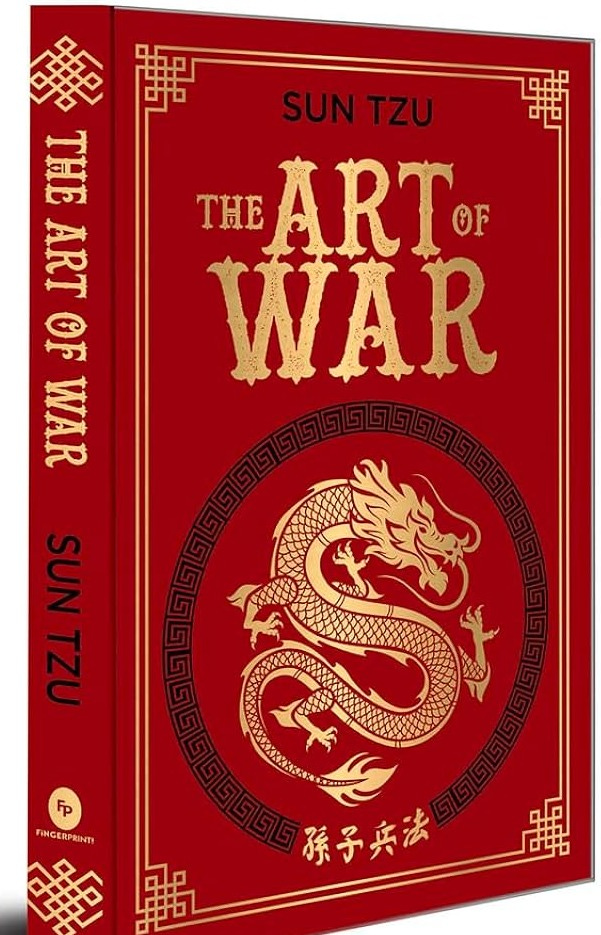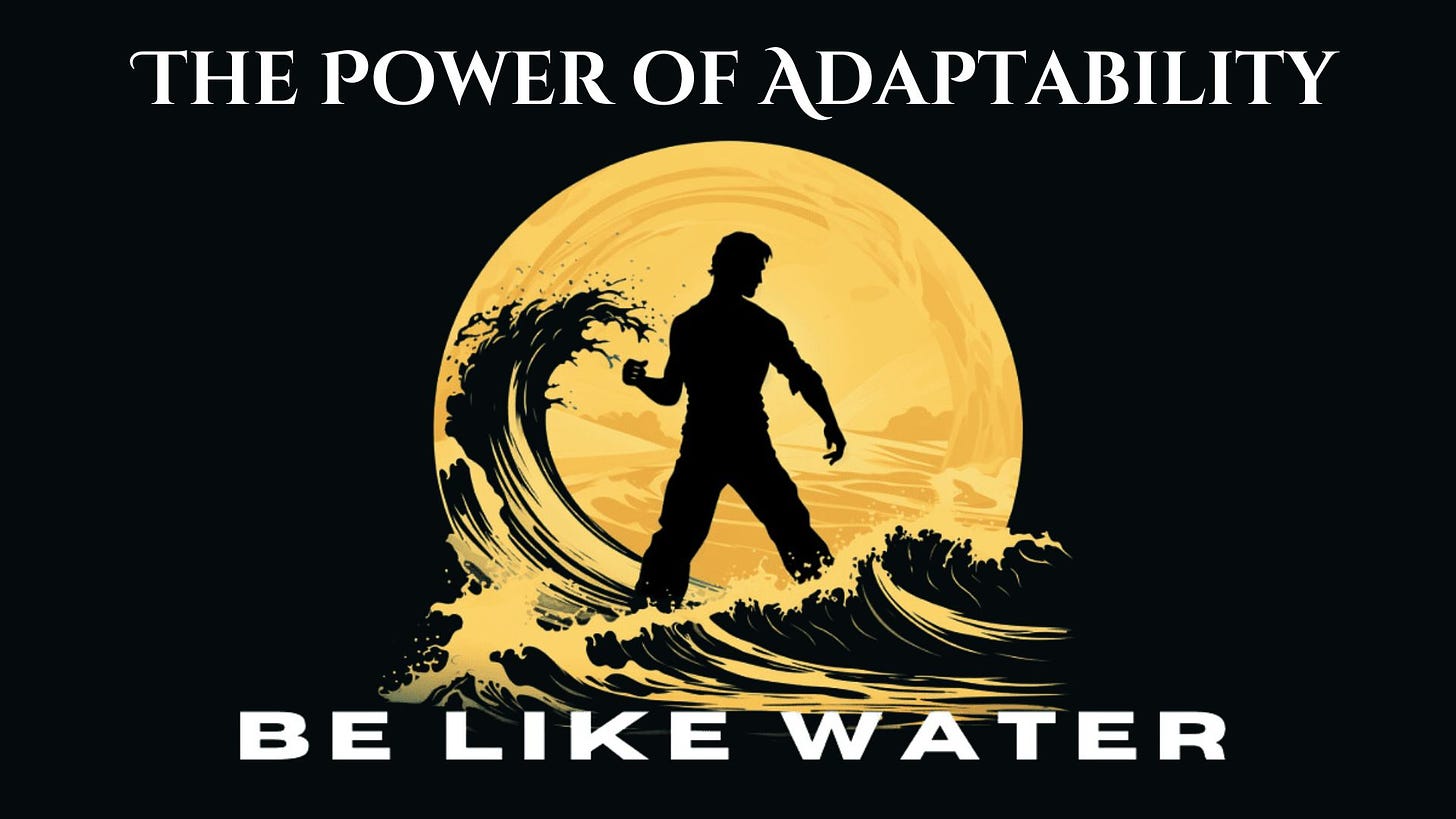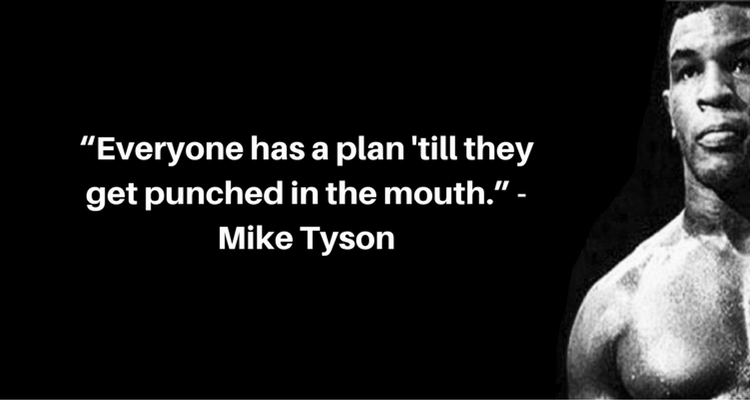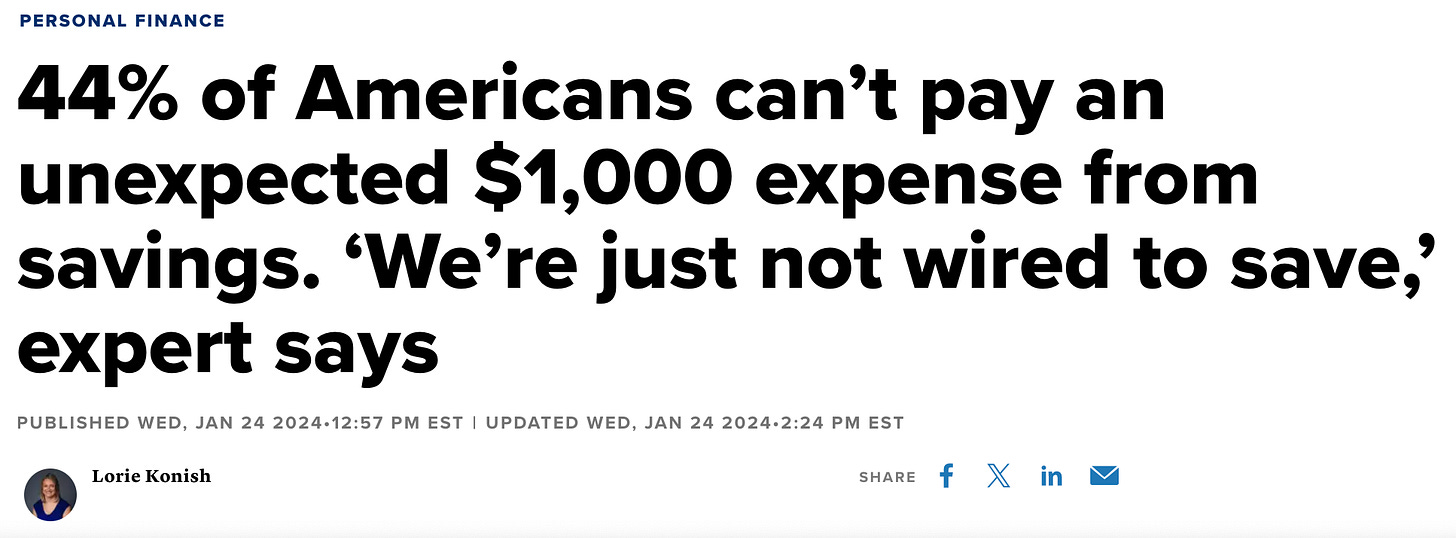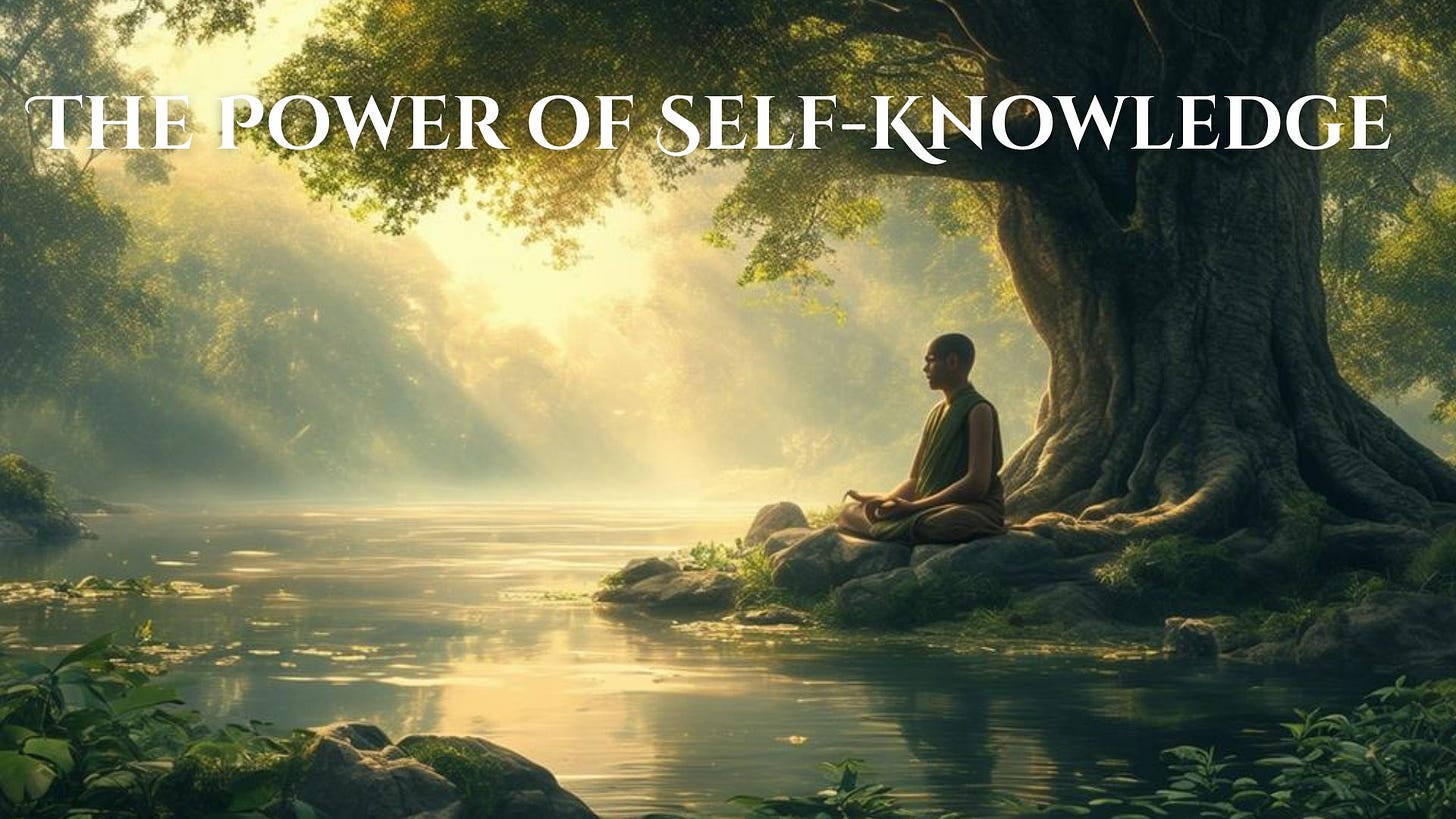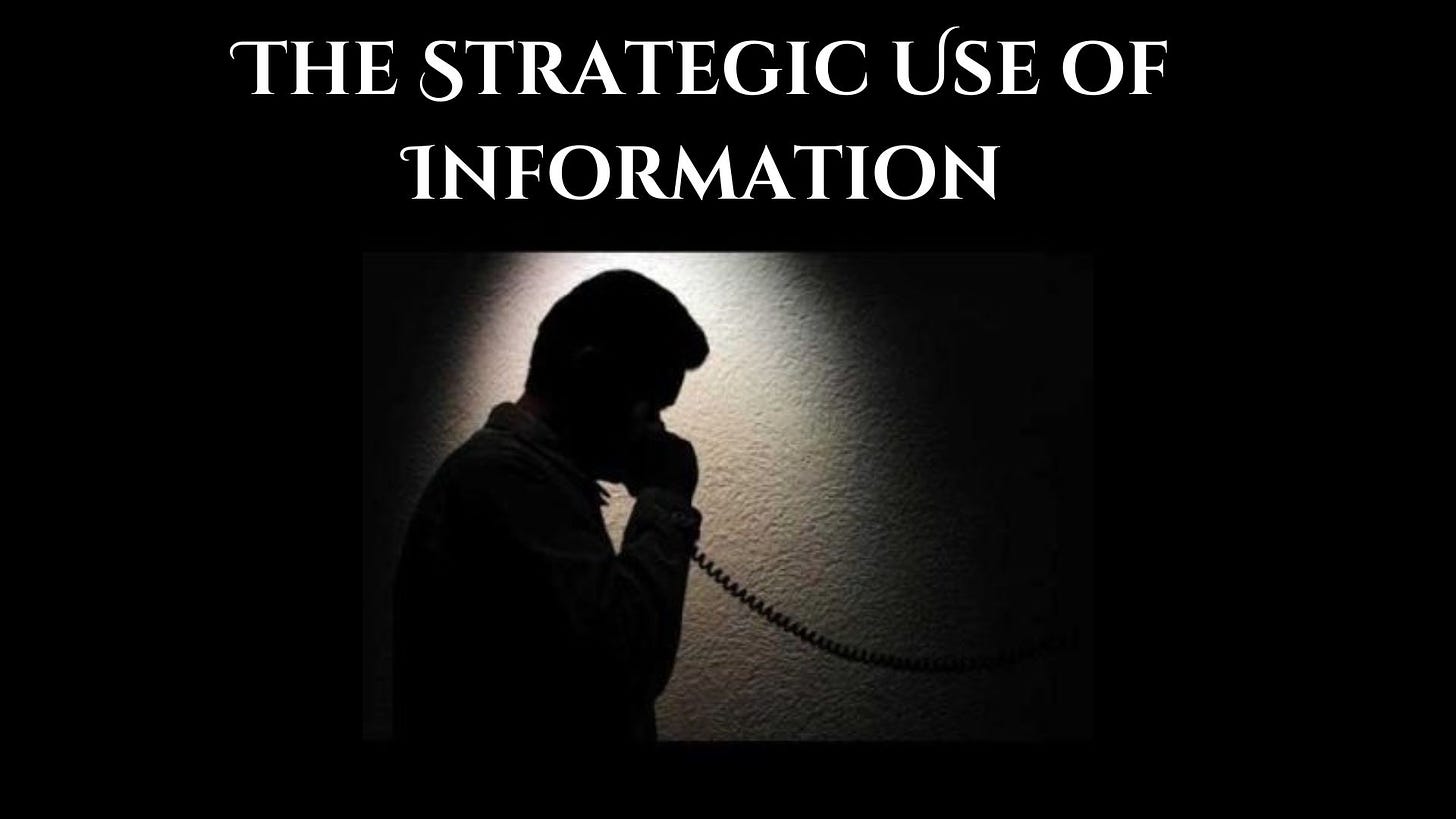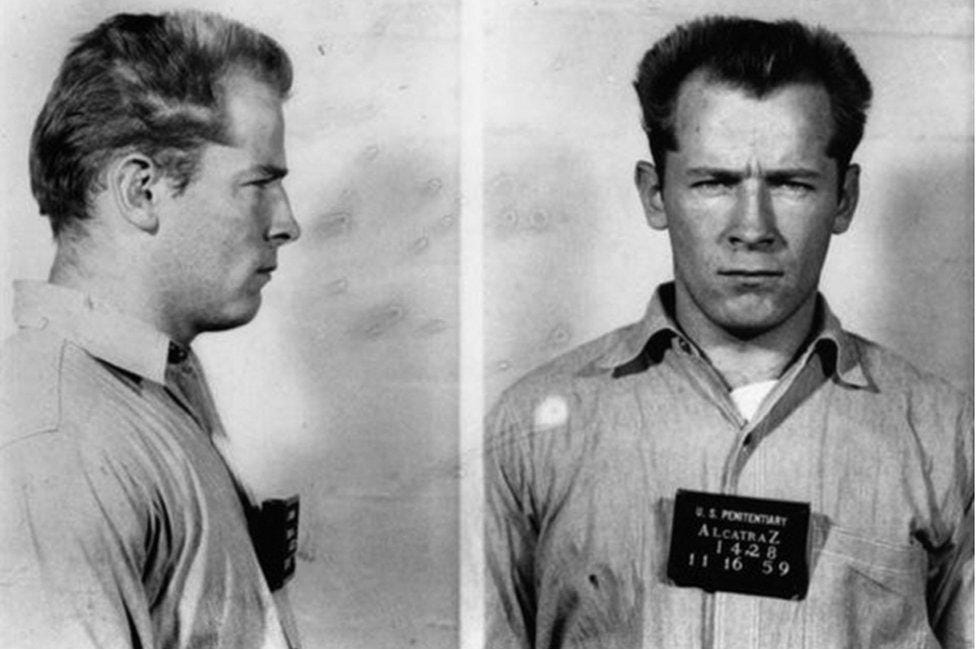The truth about The Art of War
|
Watch this essay here: What do recovering alcoholics, boxing champions, and criminal masterminds all have in common? Before I tell you that, think about the following quote: “What has been will be again, what has been done will be done again; there is nothing new under the sun." That's an almost 3000-year-old quote from the Bible, specifically the Book of Ecclesiastes, and it sums up a truth about the world and everything in it. Circumstances change, but people don't. Humans are animals. We might have bigger brains and better technology, but we're still just apes in suits trying to figure out this thing called life. In the 21st century, with smartphones, high-speed internet, and cryptocurrencies, we still fight, fall in love, trust, and betray one another, just as we did 3000 years ago. This is why old solutions are so effective at solving modern problems. Enter The Art of War.
The Art of War is one of those books everyone talks about and quotes, but most people have never taken the time to read it, take notes, and try to apply it. It's like Stoicism: Everyone talks about how it's changed their life, but the closest they've ever gotten to it is putting a copy of Meditations on their bookshelf to impress people. And that's a shame because The Art of War is super short, and—like most of the classics—it's free! You can find copies of it everywhere online to download or you can take it out from a good old-fashioned library. Digging into it will give you a fresh perspective on new problems despite predating the Bible. This ancient Chinese text offers profound insights that are as relevant today as they were two and a half millennia ago. In this essay, we'll explore how this timeless wisdom can help you navigate the complex battlefields of modern life, from the boardroom to your relationships. I've spent months specifically studying this text, only to discover that I've been applying its principles to overcome various challenges and obstacles in my life. Unlike your standard interpretations of The Art of War, I'll show how to use classic military strategies to achieve modern success with minimal effort. By the end of this essay, you'll have four powerful but incredibly simple strategies from The Art of War that you can apply immediately to overcome obstacles and achieve success in ways you never thought possible.
The Power of Adaptability
What if I told you that your ability to adapt could be more potent than any skill you possess? Evolutionary biologist Charles Darwin once said, “It is not the strongest nor the most intelligent of species that survives, but the one that is most adaptable to change." If you dig into the history of this quote, it turns out that Darwin never actually said this. This quote was a summary of Darwin's ideas presented by another professor, but that doesn't make the idea any less accurate. Your ability to shift your plans according to circumstance will determine whether you succeed or fail. Many people lament about the old days or hope for something new, but either perspective sets you up for failure in the present moment. You must figure out how to overcome the difficulty in front of you, or you will get left behind by those who will. It's like the people today who hate that AI is taking over everything, that no one reads blogs, or that almost 75% of couples today met online. All your ranting and raving about how things are changing doesn't stop things from changing. The only thing you can do is make sure you don't get left behind, like the people who still use flip phones. Sun Tzu says, "As circumstances are favorable, one should modify one's plans." In our rapidly changing world, those who can quickly adjust their strategies are the ones who thrive. If you do what you’ve always done, you’ll get the results you’ve always gotten. Depending on those results, that might be fine. However, the only constant in life is change, so you need to be adaptable because it's not a matter of "if" but "when" what you've always done will no longer be effective. Sun Tzu also says, "Do not repeat the tactics which have gained you one victory, but let your methods be regulated by the infinite variety of circumstances." Heavyweight boxing legend Mike Tyson is famous for saying many things, but one of his keenest observations was, "Everyone has a plan until they get punched in the mouth." In other words, no matter how well-constructed your plans are, most plans don't survive chaos
. Prussian General Helmuth Von Moltke expressed this idea with a bit more eloquence, but the idea remains the same: "No plan of operations extends with any certainty beyond the first encounter with the main enemy forces. Only the layman believes that in the course of a campaign, he sees the consistent implementation of an original thought that has been considered in advance in every detail and retained to the end." But that doesn't mean you don't need to plan because planning to fail is planning to fail. Tyson didn't say that, but it's still a worthwhile idea. The Art of Preparation
The only strategy worse than not planning for things to go wrong is naively believing that everything will go right. When I was 26, I worked as a security guard at a men's homeless shelter. There are many reasons why someone becomes homeless, but one scenario stood out. I saw more than one guy who had been laid off just a few weeks earlier, so he couldn't make the rent, had no savings, and got evicted. This is one of those experiences that is far better learned vicariously. You don't need to learn EVERYTHING the hard way, and you won't survive long enough to reap the benefits of the lessons if you do. There are several stats about how most Americans don’t have anything saved. Some people doubt that most Americans have less than $1000 saved, but I've seen this happen too many times to doubt it. Even if a person has $10,000 saved, how long would it last in a place like San Francisco or New York?
I'm inclined to believe them. If you have nothing saved, work on increasing your economic value and building additional income streams because being homeless is no way to live. "The art of war teaches us to rely not on the likelihood of the enemy's not coming, but on our own readiness to receive him." By preparing for the worst-case scenario, you'll be ready for anything. It's better to get ready for the bad times while things are going well than to hope the bad times never end; because the worse time to learn how to fight is while you're getting your ass kicked. Now, there are two keys to effective preparation. Internal knowledge (knowledge of yourself) and external knowledge (knowledge of your surroundings and circumstances). Regarding effective preparation, most of us are pretty good at identifying external events. At the very least, we're at least mildly aware of obstacles and impediments that might spring up. But we're typically awful at considering how we're going to mess up our own plans, but what if I told you that the key to success was knowing your own personal weaknesses? Well, I don't have to. Sun Tzu does it for me. The Power of Self-Knowledge
You may have already learned this the hard way, but did you know that you are your own worst enemy? Do you want to know why drug interventions rarely work? Because until a person wants to stop using drugs or abusing alcohol, they’ll keep using drugs and abusing alcohol. And they’ll keep this behavior up because they don’t believe they have a problem. They’ll say things like “I can quit anytime” to saying “It’s not like I’m an alcoholic” despite all the evidence to the contrary. I don't want you to think I'm speaking from my high horse over here. As of the recording of this video, I've got 10 years of sobriety. I've only been able to do that because I looked at myself, accepted there was an issue, and got to work on it. The causes of alcoholism are numerous and debated, but what is not under debate is what I mentioned here: if you don't know yourself and know that you have a problem, you can't ever do anything about that problem. Even worse, you'll make it worse until there's nothing you can do about that problem because death or imprisonment has solved it for you. This is also why budgeting our money fails, and most people don't have anything saved. Assuming you make enough to where you can effectively budget—and many people are not in the financial situation to be able to do this easily—but if you are not one of them but still find yourself failing with a budget, the problem is that you don't know yourself well enough. Not discipline. Let me explain. Think of budgeting like a diet. Rarely the challenge with dieting is not knowing what to avoid or a lack of motivation. People often don't set their environment for success by removing undesirable food from their refrigerator. Harkening back to the sobriety issue, the easiest way to stay sober is to never be in the same place as alcohol. Not all recovering alcoholics need to stay away from bars permanently, but they know themselves and know they have a problem. So they do. Relying on willpower can work, but if your willpower is that good, you wouldn't be in a situation to need it in the first place. When you know yourself, avoiding battles you'll lose is much easier. Sun Tzu says, "If you know the enemy and know yourself, you need not fear the result of a hundred battles," reminding us that understanding ourselves is as crucial as understanding our opponents or circumstances. In my story, the opponent was alcohol, but this principle applied when I was a boxer. Now, let's take this idea a step further. Understanding yourself and your opponent is powerful, but how you use that knowledge makes the difference. This brings us to our final principle from Sun Tzu, which might surprise you... The Strategic Use of Information
What if I told you that the key to winning isn't always being the strongest but the smartest? One of my favorite movies is Martin Scorcese's start-studded crime thriller "The Departed." Spoiler alert for incoming content, but the movie did also come out in 2006. In The Departed, South Boston cop Billy Costigan (played by Leonardo DiCaprio) goes undercover in the crime organization of Irish Mob Boss Frank Costello (played by Jack Nicholson). Meanwhile, Costello has been able to stay one step ahead of the police because he has his own mole in the police department, Officer Colin Sullivan (played by Matt Damon). At first, no one in the gang knows there's a rat, and no one in the police department knows there's a mole, although there are suspicions. To combat those suspicions, Costigan's handlers in the police department keep all information away from the rest of the department. This control of information allows the police to make great strides in their fight against Costello's gang, but in the ultimate twist, it turns out that Costello has "a get out of jail free" card because he's been working as an FBI informant, giving up information on his rivals in the Italian Mob. The movie is based on the real-life events surrounding Irish mobster Whitey Bulger and his mole in the FBI, John Connelly. I thought that was cool, but I didn't know it when I first saw the movie. It shows the power of the strategic use of information. The movie ends with the heroes and villains dying, but that's Hollywood. In real life, Whitey Bulger was eventually sentenced to 2 consecutive life sentences (plus 5 years for good measure), and Agent Connelly retired with honors but was eventually imprisoned
. Sun Tzu states, "All warfare is based on deception." In business and life, strategic use of information can give you a significant advantage over competitors who may be stronger or have more resources, even if those competitors are rival criminals or the government. Now that you've learned these timeless strategies from The Art of War, you can face life's challenges with the wisdom of an ancient military genius. But this is just the beginning of your journey to mastering the art of strategy. Part of strategy requires the resilience to see your plans through and the mental fortitude to deal with failures, regardless of how well you adapt or plan. If you want to develop the resilience to apply these ideas, check out my video below on what I learned from boxing about building resilience. It'll change how you approach difficult things and make applying the concepts from The Art of War much easier. |
Stoic Street Smarts
Teaching what I've learned from the hood, the ring, and everything in between. Join 35k other readers to learn how to manage risk, build relationships, and confront reality.
Writing is like any other business:It doesn’t matter how good your product is if you don’t have a way to get it in front of customers. Your idea will fail to launch and fail to impact lives. That said, no amount of marketing or sales can save a terrible product.So while writing the book might be the easiest part, it’s also—by far—the most important. That’s because good writing is good marketing. If it’s well-written, people will talk about the book. They’ll recommend it. Word of mouth will...
Forgiving myself has been the most challenging thing I've done. I'm not sure I've done it, but I try every day. As of the writing of these words, I've got 12 years of sobriety. This isn't enough time to forgive myself, as I still feel guilty for my behavior under the influence and beyond. But each day is a new one I approach with humility and gratitude for my luck and second chances. The main idea I remember when forgiving myself is that the past isn't real. Understanding this concept is...
Before we get into today's newsletter, here are some announcements and updates. We're not one week out from my return to the ring after 8 years off. July 12th, I fight here in my city at the Highmark Stadium. I feel fortunate that I'm able to fight on this card in the heart of the city. The card is not broadcast or streamed. I know my email list spans the entire world, but I also know there are some people in the Pittsburgh area where I live. If you want to come down and enjoy a great night...
